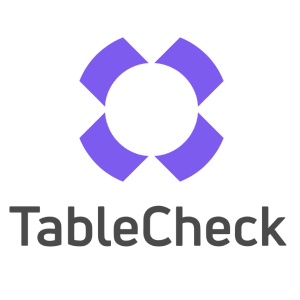Updated January 11, 2024
"Why Are You Applying For This Position?" - How to Answer in Japan
It's one of the most important questions you'll be asked in interviews. In fact, it might be the first question you hear: "Why are you applying for this position?"
And while you probably have several reasons for applying, it's important to know how to answer in a way that tells your interviewer what they actually want to know.
As I discussed in my post where I provided ideal answers for some of the top job interview questions in Japan, interviewing for a job here is a bit of a unique experience. If you want to ace an interview, you need to follow certain rules, which tend to involve crafting strategic answers that companies want to hear.
However, to master such a specific skill, you first need to learn why companies ask these questions in the first place.
This can be a bit challenging for foreign candidates, who might also face the question, “Why do you want to work in Japan?”, which is even trickier to answer, but I’m here to help!
In this post, I’ll explain what companies are actually asking when they ask, “Why are you applying for this job?” and I’ll give you some ideas on how to respond to this question the right way if you want to get hired in Japan.
Let’s dive right in.
Understand The Why: The Reasoning Behind The Question
In most job interviews, one of the first questions you’ll get asked is “Why are you applying for this position?”.
While this may simply sound like a conversation starter, tempting you to ramble about your passion for the job in vague terms, this isn’t exactly what the company wants to know.
Usually, when an interviewer asks why you applied for the job, what they really want to hear are more tangible answers you can link to the specific position or company you’re applying for.
Generally, companies want to see that you’re well-informed about the services and products they offer, their mission, business motto, and so on. They want to know that you’ve done your research, which is a good way for companies to eliminate candidates who didn’t even bother to check the company website right from the get-go.
Having prior knowledge about the company and its products also means that the candidate is more likely to know what the position entails and what responsibilities are attached to it.
Naturally, companies prefer candidates who are ready to take on a specific role and understand their own skill set. Due to this very reason, it’s vital to know that incorporating your specific skills and relevant experiences in your answer is almost expected from candidates who are presented with this question.
Still, depending on the company and setting, there may be a couple of other reasons “why” the company is asking you why you’re applying. Let’s have a look.

Cultural Compatibility
Your cultural background or your ability to adapt to a new culture carries almost as much importance as your educational or professional background. This is why companies may look for assurance concerning your compatibility.
This is an especially important point for foreign candidates, as the recruiter may not always be familiar with the business culture of your background.
Still, instead of trying to shoe in the fact that you’re culturally compatible into your answer, I recommend keeping it concise in this regard. If you suspect that the company worries about your cultural compatibility, it’s best to lightly mention that you’re open to adopting a new work culture despite coming from a different background.
Career Trajectory
As I explained in my post on job hopping in Japan, the traditional way here is to work at the same company for a long time. In fact, lifetime employment is a common term in Japan, and in many cases, people retire from the same company they first got hired by decades ago.
So, it’s not hard to tell that Japan is big on job stability.
Besides, training employees on the job is also a common concept here. Traditionally, when companies hire candidates, they want to keep them for a long time in order to make a proper return on the time and money they invested in the employee.
While this traditional way of hiring candidates for life and training them on the job may not be as common in the tech industry today, companies still care whether you have a planned career trajectory.
Even if the company you’ve applied for is a more modern one, like the ones we feature on the Japan Dev company list, they might still want to be reassured that you’re serious about your career and that the position you’re applying for aligns with your personal goals.

Other Ways to Ask “Why Are You Applying For This Job?”
The reason “why are you applying for this position” sounds like a cliche is because it just is.
It’s an unavoidable question that every recruiter has to ask, so, some may choose to get creative with it and present the query in different ways. Also, some people in Japan may choose to be less direct so they don't seem rude.
So, here are some alternatives for this question you’ll likely come across on your job hunt in Japan:
Why do you want to work in Japan?
Why do you want this job?
Why should we hire you?
What attracted you to apply for this position?
While some of these questions seem like they’re asking for more general answers, they all require similar answers, and you’re better off following our guide than improvising on the spot.
Speaking of which, here’s how you can craft the perfect answer.
Crafting The Perfect Answer: Points to Consider
Having a good understanding of why recruiters question the reason you’ve applied for the job is a good start, but it doesn’t quite tell you how to give the perfect answer. So, here are a few clever points to consider when crafting your response.
Mention Your Future at the Company
As I explained, when a recruiter asks you why you want to be hired, they often want to be assured that you’re serious about your career and that you’ll be with the company for the long term.
So, one of the best things you can do when answering this question is talk about your future at the company. This involves what you can achieve at the company and how working there goes perfectly with your career plans.
Doing so will net you two birds with only one stone, as you’ll show long-term commitment and that you take your job seriously at the same time.
Show Your Personal Interest
This may not always be possible, but if you can, showing the company that you’re involved in your field of work or the position applied due to a personal interest is a great way to help set you apart from the rest of the crowd.
Even if your job doesn’t quite align with your hobbies or interests, you can still find a way to highlight a company’s product, service, or project, and how it influenced or inspired you to take on the role in question.
This will not only show that you’ve done your research, but also prove that you’re emotionally invested in the job, and that you want to work for not just any company, but the one you’ve applied for specifically.
Complimenting The Company Is a Plus
While this isn’t a must, and there’s absolutely a right time and place (as well as an appropriate way) to do this, in some cases, pointing out a highlight about a company’s services, products, or activities can also be a good idea.
It’s easy to take this advice and run with it, which can instantly make you look like you’re sucking up to the company. So, make sure to phrase your compliment as neutrally as possible, to avoid sounding insincere.
For instance, you can mention a project the company has participated in and how you found it impressive. Sharing a few thoughts on the specifics is also key here as it’s what makes you sound like you mean it.
If you can pull this off without seeming disingenuous, it’ll demonstrate that you’ve been following the company and that you’re genuinely interested in what they do.
Show That You’re Serious About Your Career in Japan
Demonstrating that you take your career seriously and that you have long-term goals is surely important, but when it comes to foreign candidates, companies also care a great deal about whether you see yourself in Japan in the long run.
While there are people who do come to stay for good, many foreigners come to Japan to experience the life and culture here for a few years and leave. This is why when a company asks you why you’ve applied, they also want to know why you want to work in Japan in the first place.
As companies naturally don’t want to go through hiring processes and waste resources over and over again, they want to make sure you’re serious about staying in Japan and having a career here.
So, including your adoration of Japanese culture and how you enjoy living here, or how you prefer the business culture in Japan in your answer can be a good way to reassure them without being too on the nose.
Use Correct Body Language
This may be more on the vague side, but your non-verbal communication in interviews is almost as important as what you communicate verbally.
Using your words to craft the best answer sure goes a long way, but not if you look like a jittery, stressed-out mess while doing it. Some people may be more nervous than others, and it may be hard to keep your cool during interviews. If that’s the case with you, I recommend rehearsing either in front of a mirror or with a friend so you’re better prepared.

There Are Wrong Answers: Avoid Saying These
You now have a good understanding of how to craft a good answer if someone asks you why you’ve applied for the position in an interview. While you can be creative and add even more personality to your answer, there are some common mistakes you may want to avoid while doing so.
For starters, while the core message of this post has so far been “showing the company you have real career goals,” you also don’t want to sound too self-absorbed. Talking too much about yourself and failing to mention what you can bring to the company is a surefire way to do just that, so avoid doing this at all costs.
Also, painting the company in a good light is a slippery slope, so avoid overdoing it. Try to sound genuine while mentioning good things about their products and services.
Lastly, showing some confidence is crucial, but being borderline arrogant isn’t a good look. Even if you feel confident, it’s best not to jump to conclusions and talk as if you’ve already got the job. You can do this by simply avoiding saying things like “when I get the job” and opting for “if” sentences instead.
Conclusion: Stick With The Tried-and-True
To sum up the key takeaways from this post, when recruiters ask you, “Why are you applying for this position?”, in general, they want to know the following:
Your passion for the job
Your career goals
Your career plans at the company
Your sincerity in staying in Japan for the long haul
Remember that first impressions are important, so try to strike a good balance between being too confident and nervous. As long as you convey the above mentioned key points in your answer, you’ll ace your interview with no issues.
Lastly, keep in mind that you may receive this question in other forms, such as “Why do you want to work in Japan?”. So, don’t be surprised by the way the question is presented, and stick with our tried-and-true method.
As there are other points to consider when preparing for a job interview, make sure to also check out my posts on what to wear to a job interview in Japan and how to survive coding interviews.
Get Job Alerts
Sign up for our newsletter to get hand-picked tech jobs in Japan – straight to your inbox.







